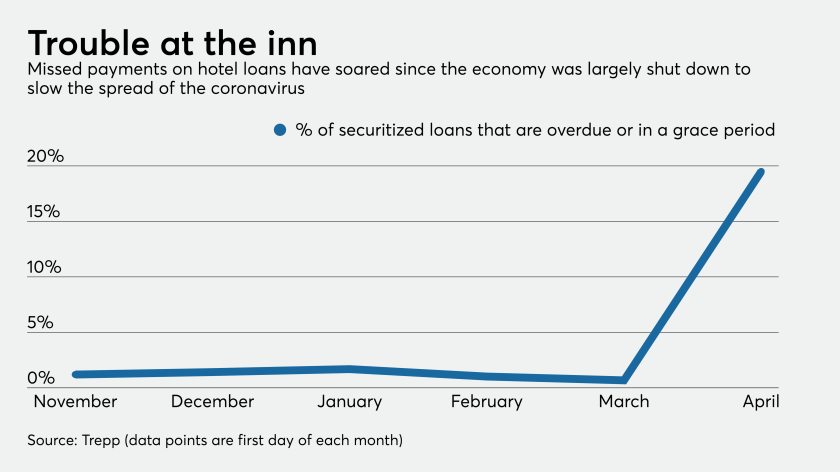Fintechs in the payments industry saw problems coming when the CARES Act’s SBA Paycheck Protection Program opened the floodgates for millions of coronavirus-stricken small businesses to apply for loans.
Queued-up loans. Extra bankers. Government tweaks to promote fairness. None of these precautionary measures has been enough for the second round of the Paycheck Protection Program to avoid the pitfalls of the first.
As banks accept new applications for the paycheck program, they are dogged by complaints that they prioritized wealthy borrowers. But lenders likely fast-tracked clients they knew best under difficult circumstances, observers say.
More details have emerged about the damage the coronavirus pandemic is inflicting on the hospitality industry. One servicer alone has received 2,000 workout requests in the past month.
The central bank and other agencies have come under pressure to be transparent about their use of funds authorized by the recent pandemic rescue law.
Lawmakers should approve a program to distribute stimulus funds using a government-sanctioned coin, which would be speedier than the current system.
The Federal Reserve’s Main Street Lending Program is meant to be a lifeline for midsize businesses, but two weeks after its unveiling, those firms and their lenders remain on edge about what strings will be attached.
The program, created in response to the 2008 financial crisis, generated $19 billion in small-business loans. It could be used as a viable path out of the coronavirus pandemic.
Small banks are a lifeline for many local businesses and should be given first crack at distributing funds from a continuation of the federal stimulus program.
John Pitts, policy lead for Plaid, has some ideas to ensure Paycheck Protection Program legislation set to be voted on this week targets the companies most in need of a cash infusion.


















